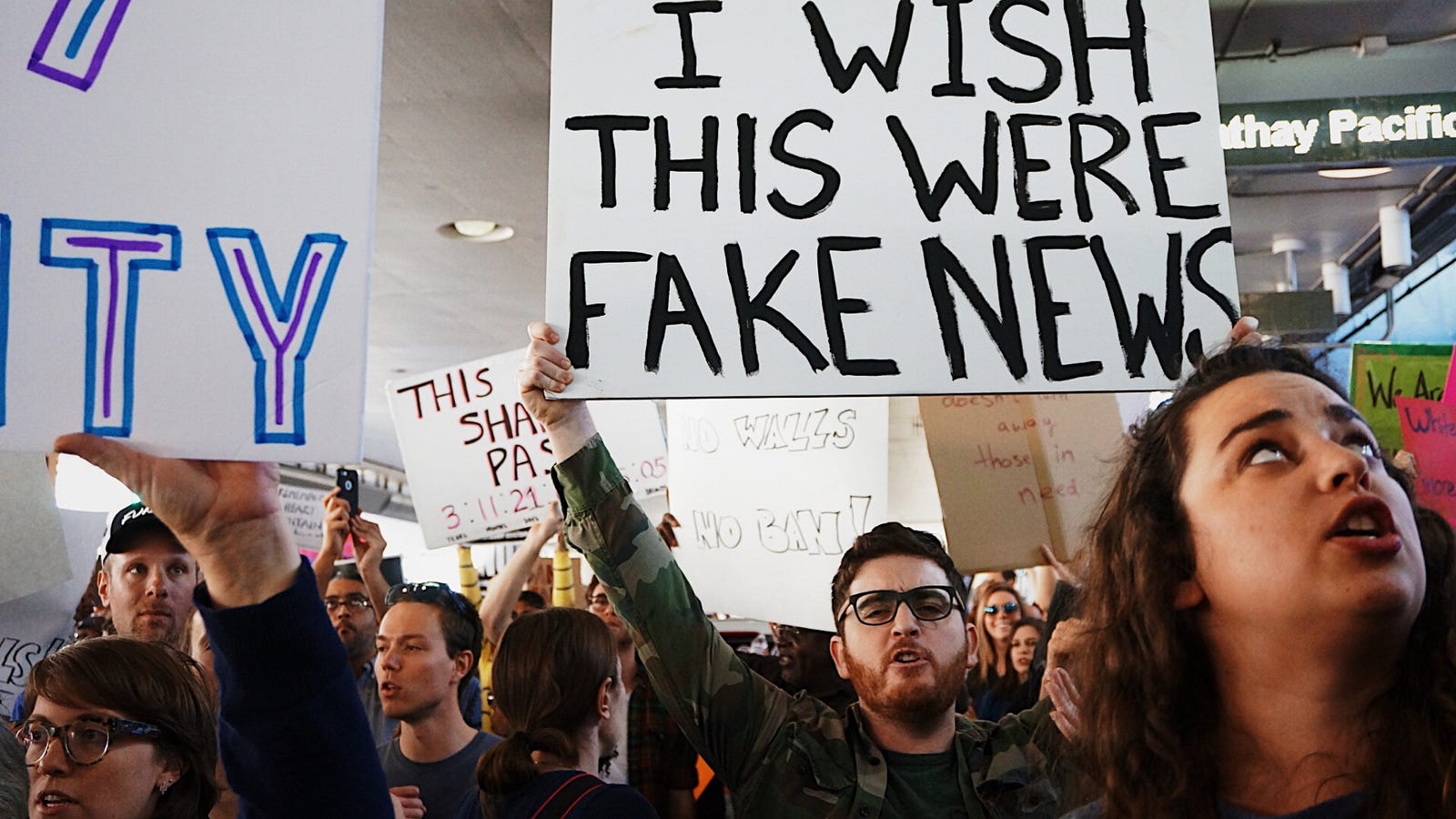
We need to stop joking about “fake news.”
Repetition of a phrase normalizes the thing itself; this notion is deeply rooted in psychological and sociological theories of behavior, and dates back at least a century. The more we use a phrase, the more it seems normal or socially acceptable — slowly, perhaps, but surely.
While I’m not disputing the humor of Saturday Night Live-esque attacks on the current Commander-in-Chief (nor, to some degree, their necessity), joking about “fake news” poses a particularly great danger to our democracy and by extension, our nation itself.
Fake news is actually a problem, and I don’t mean the term; I mean disinformation.
We are constantly at war within the cyber domain, and we only need turn on the television to see the month’s latest data breach or state-sponsored hacking campaign. Attacks occur constantly and in real-time, with very low barriers to entry. Previously-declining nation states can now increase their presence on the world stage through low-cost cyberattacks that are both devastating and difficult to attribute. This conflict is in fact so different from traditional warfare that we’re forced to redefine the meaning of the word itself.
Under this umbrella of cyber conflict falls information warfare — really, disinformation warfare: spreading fake news in an effort to sow chaos and dissent. At this moment, it’s well known that the Russian state engaged in such a campaign during our 2016 presidential election, taking out fake news ads on social media platforms like Facebook. Other instances of disinformation warfare similarly occur around the globe, whether the alt-right in Germany or the Russians in France, Estonia, Latvia, the UK, and a host of other countries. It’s a serious threat that has already jeopardized the integrity of numerous elections, and it will continue to do so for the foreseeable future.
Disinformation warfare is not to be taken lightly, but joking about fake news paints a different picture. Though well-intentioned, comical and even satirical uses of the term “fake news” take the treacherous and manipulative — literal attacks on democracy — and slowly normalize their existence. Our society is gradually accepting disinformation through repetition, as each joke chips away at the idea’s starkly negative connotation.
“Fake news” — meaning the term itself — is also dangerous. As we well know, politicians and alt-right voters (not to mention Donald Trump) seriously and deliberately use this phrase to voice distrust of factual and reputable information. Unfashionably splitting from past politicians who questioned specific journalists or challenged individual stories, contemporary users of the term broadly attack the institution of free press itself; they loudly claim and legitimately believe that we shouldn’t trust a single world that comes from the mouth, pen, or keyboard of a journalist.
From denouncing corruption allegations to voicing disbelief of climate change and election interference, “fake news” has found use in a breadth of politically-challenging situations; it’s been quite powerful for those among us wishing to deflect and deny reality. By doing so, these users have fostered notable distrust of information itself.
History has repeatedly shown that such attacks against the press are indicative of fascism and imminent political instability, which is true cause for concern. Indeed, reports have arisen of Syrian President Bashar al-Assad, Filipino President Rodrigo Duterte, and Venezuelan President Nicolas Maduro — all contemporary fascist leaders — using the term to denounce criminal allegations by their own media. For those who arrest and even kill their own citizens, use of the term is no laughing matter. But by joking about “fake news,” we are engendering an amused and apathetic response to attacks on the very bedrock of democracy itself: the free press. We are conditioning our culture to tolerate (and even accept) not just a term, but an idea, that should be seriously threatening and heavily stigmatized.
Now, this is not to say that I’m above the law; I’m certainly guilty of joking about fake news myself. In times like these, it can often be refreshing to resort to sarcasm, satire, and other forms of mockery to cope with our current state of affairs. We live in a world where all the bad is constantly delivered to our screens, and that can be particularly difficult and disorienting, not to mention disturbing. Further, the questions surrounding “fake news,” from how we define it to how we deal with it, are hardly simple. But we need to realize that our jokes are normalizing two serious threats to democracy, both at home and abroad. We need to stop joking about fake news.













